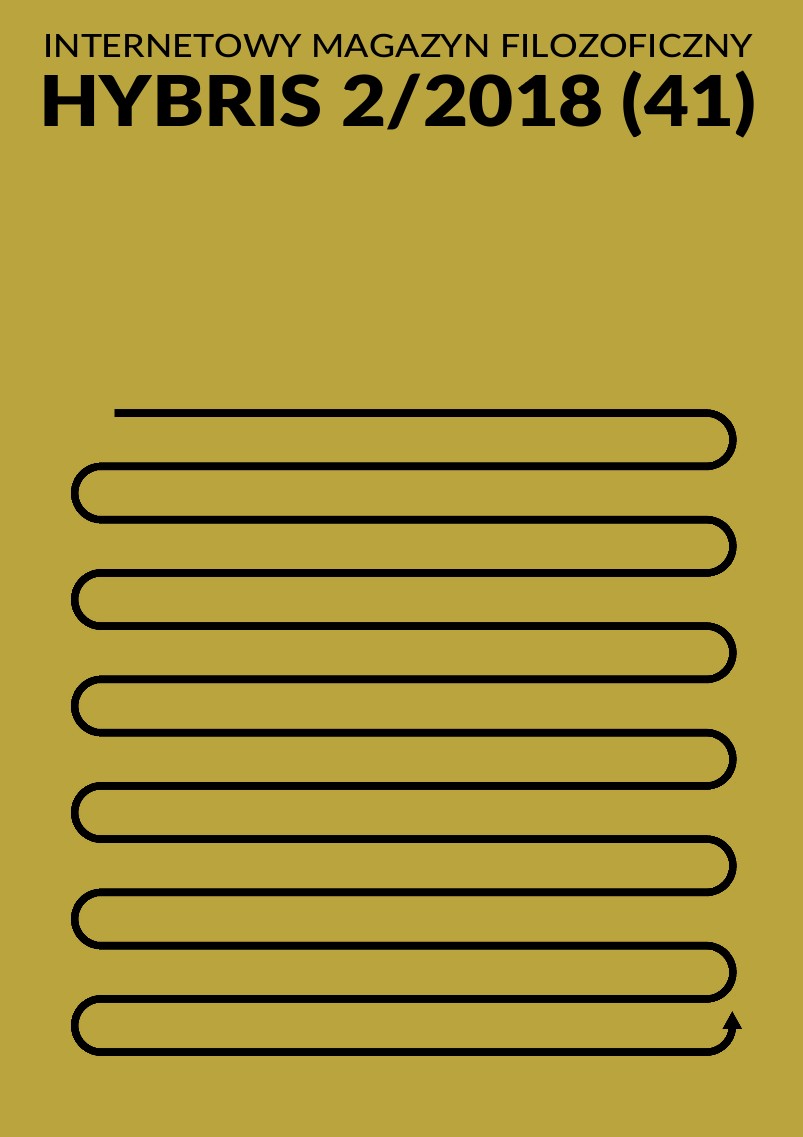Universalism, Pluralism, and the Good: Nussbaum’s Capabilities and Finnis’s Basic Goods
DOI:
https://doi.org/10.18778/1689-4286.41.02Keywords:
capabilities approach, basic goods, common good, practical reason, universalityAbstract
Is it possible that Nussbaum’s capability approach and Finnis’s natural law theory have anything in common? We usually do not think ethical pluralism and an account of objective good to be members of one family of theories. Nevertheless there is a set of ideas that Nussbaum and Finnis apparently, and surprisingly, share. Both authors elaborate a list of values which plays a central role in their theory. Careful examination of these lists provides us with many similarities in terms of concepts, terminology and interpretation. Finnis and Nussbaum both employ the ideas of practical reason and intuition, or self-evidence, to reject the academic requirement for theoretical proof of normative approach in morality, philosophy of law and political theory. In this way, they both seek to secure their claims to universality.
References
Arystoteles. Metafizyka. Tłum. T. Żeleźnik, oprac. M.A. Krąpiec, A. Maryniarczyk, 1996 Lublin: RW KUL, t. 1.
View in Google Scholar
Charles, David, (1988), Perfectionism in Aristotle’s Political Theory: Reply to Martha Nussbaum, Oxford Studies in Ancient Philosophy, suppl. vol., s. 185–206.
View in Google Scholar
Finnis, John (1977) Scepticism, Self-refutation and the Good of Truth, w: P. M. Hacker and J. Raz (red.), Law, Morality and Society: Essays in Honour of H.L.A. Hart, Oxford: Clarendon Press, s. 247–267;
View in Google Scholar
Finnis, John (2001) Prawo Naturalne i Uprawnienia Naturalne, przekł. K. Lossman, Warszawa: Dom Wydawniczy ABC, Polskie Wydawnictwa Profesjonalne;
View in Google Scholar
Finnis, John (2011a) Natural Law and Natural Rights, 2nd edition, New York: Oxford University Press;
View in Google Scholar
Finnis, John (2011b) Reason in Action. Collected Essays: Volume I, Oxford: Oxford University Press.
View in Google Scholar
DOI: https://doi.org/10.1093/acprof:oso/9780199580057.001.0001
Fortin, (1982). The New Rights Theory and the Natural Law, The Review of Politics, Vol. 44, 4, , s. 590-612.
View in Google Scholar
DOI: https://doi.org/10.1017/S0034670500041504
Głąb, Anna, (2010), Rozum w świecie praktyki. Poglądy filozoficzne Marthy C. Nussbaum, Warszawa: Wydawnictwa Akademickie i Profesjonalne.
View in Google Scholar
Głowala, Justyna, (2011), Rozumność praktyczna. Teoria prawa naturalnego Johna Finnisa w świetle nauki Akwinaty, Zeszyty Naukowe Doktorantów UJ, Nauki Humanistyczne, nr specjalny 3, (2), s. 229 – 242.
View in Google Scholar
Kwarciński, Tomasz, (2006), Komu pomóc w pierwszej kolejności?, „Prakseologia” (146): s. 31-50;
View in Google Scholar
Łabieniec, Paweł, (2002), Teoria prawa naturalnego Johna Finnisa wobec sporu między pozytywizmem prawniczym a doktrynami prawa naturalnego, „Ius et lex”, 1.
View in Google Scholar
Machura, Piotr, (2015) Dobro a wolność. Wokół teorii możliwości Marthy Nussbaum, „Folia Philosophica”, (33), s. 211 – 230.
View in Google Scholar
Mulgan, Richard, (2000) Was Aristotle an “Aristotelian Social Democrat”?, Ethics, 111, 1, s. 79-101.
View in Google Scholar
DOI: https://doi.org/10.1086/233420
Nussbaum, Martha, Craven (1980) Shame, Separateness, and Political Unity: Aristotle’s
View in Google Scholar
Criticism of Plato w: Essays on Aristotle’s Ethics, (red.). Amelie O. Rorty, Berkeley: University of California Press;
View in Google Scholar
Nussbaum, Martha, Craven (1988) Nature, Function, and Capability: Aristotle on Political Distribution, Oxford Studies in Ancient Philosophy, suppl. vol., s. 145–84;
View in Google Scholar
Nussbaum, Martha, Craven (1990) Aristotelian Social Democracy, w: (red.) R. B. Douglass, R. M. Hara, H. S. Richardson, Liberalism and the Good, New York, London: Routledge, s. 203 – 252;
View in Google Scholar
DOI: https://doi.org/10.4324/9780429278433-10
Nussbaum, Martha, Craven (1992) Human Functioning and Social Justice. In Defense of Aristotelian Essentialism, “Political Theory”, 20 (2), s. 202 – 246;
View in Google Scholar
DOI: https://doi.org/10.1177/0090591792020002002
Nussbaum, Martha, Craven (1993) Social Justice and Universalism: In Defense of an Aristotelian Account of Human Functioning, Modern Philology, Vol. 90, Supplement (May), s. S46-S73, The University of Chicago Press
View in Google Scholar
DOI: https://doi.org/10.1086/392123
Nussbaum, Martha, Craven (1997) Capabilities and Human Rights, “Fordham Law Review”, 66 (2), s. 273-300;
View in Google Scholar
Nussbaum, Martha, Craven (2000) Women and Human Development, Cambridge University Press, Cambridge and New York
View in Google Scholar
Nussbaum, Martha, Craven (2006) Frontiers of Justice: Disability, Nationality, Species Membership, Harvard University Press, Cambridge MA.
View in Google Scholar
DOI: https://doi.org/10.2307/j.ctv1c7zftw
O’Sullivan, James, P., (2015) Maritain and Nussbaum: Two Ironically
View in Google Scholar
Promising „Essentialist” Accounts of Basic Social Justice, „The Heythrop Journal”, LVI, s. 629-642.
View in Google Scholar
Piechowiak, Marek (2006)Prawo naturalne a prawa człowieka, [w] Substancja, natura, prawo naturalne, [red] A. Maryniarczyk, K. Stępień, P. Gondek, Polskie Towarzystwo Tomasza z Akwinu, Lublin, s. 391 – 409
View in Google Scholar
Piechowiak, Marek (2012) Dobro wspólne jako fundament polskiego porządku konstytucyjnego, Warszawa.
View in Google Scholar
Downloads
Published
How to Cite
Issue
Section
License

This work is licensed under a Creative Commons Attribution-NonCommercial-NoDerivatives 4.0 International License.






